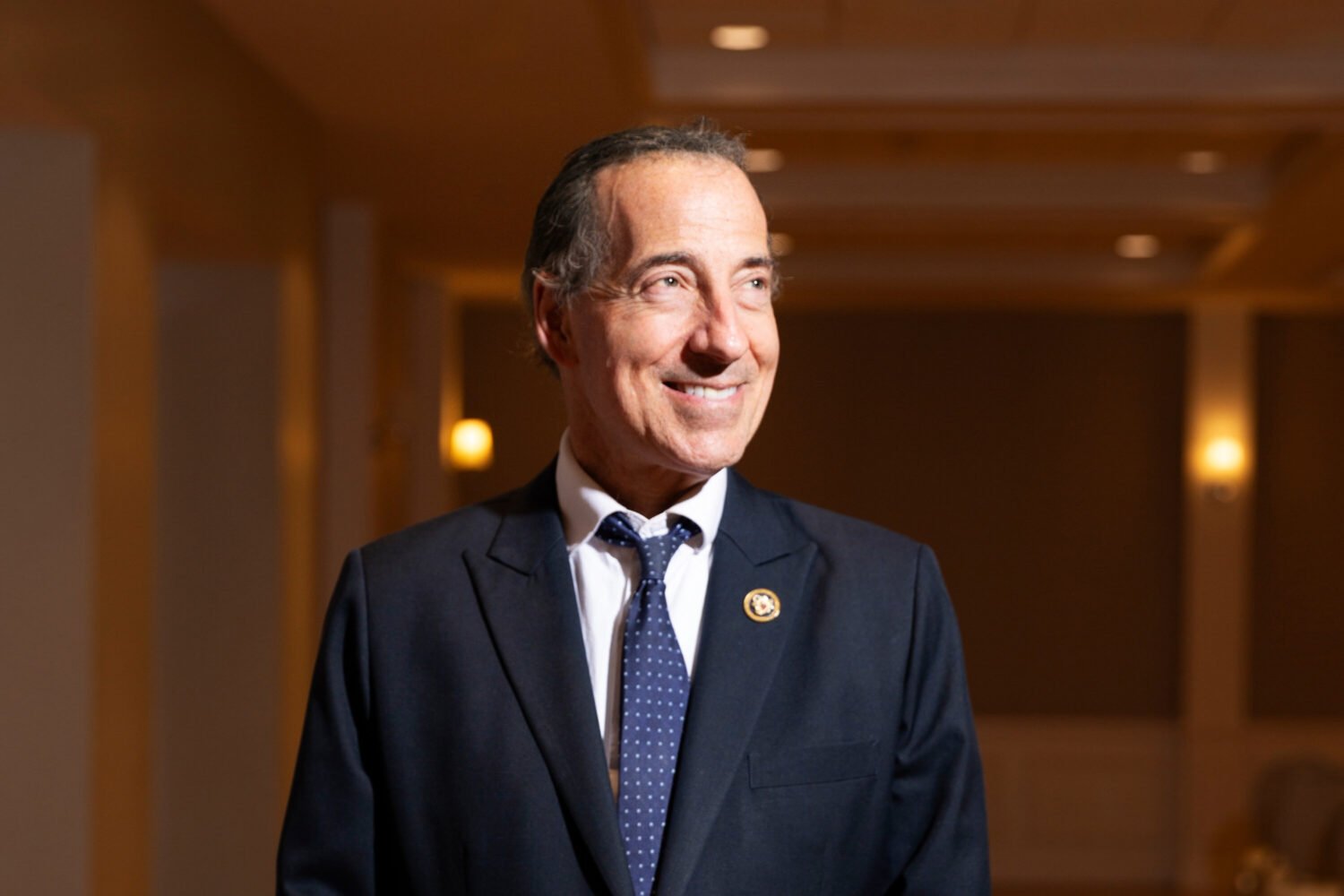The chaos and confusion in the first few weeks of Donald Trump’s presidency has been felt all over Washington. Including in the offices of mental-health therapists.
“People are far more anxious and scared than I’ve seen in years,” says Michael Radkowsky, a licensed psychologist in Woodley Park. “There’s just a great level of uncertainty of what life is going to be like going forward in all kinds of ways—from local to worldwide.”
Whether or not your livelihood is directly impacted by Trump’s presidency, therapists say it’s perfectly normal to feel overwhelmed right now. Here’s some of their best advice for staying grounded during these early days.
Accept your emotions.
According to Aaron Pearl, a licensed clinical professional counselor and psychotherapist in Tenleytown, the best way to process negative emotions is head-on. That’s why he’s leaned on “acceptance and commitment” therapy (ACT) with his clients over the past two weeks.
“The way that I help people deal with their uncertainty is learning how to tolerate their feelings,” he says. “Don’t fight them, and don’t block them. Find a way to ground yourself in the fear and uncertainty.”
Pearl says that it’s imperative to push through any resistance to accepting your emotions, despite how painful and complex they might be. Avoiding them, or attempting to numb them with other activities, merely delays—rather than eliminates—the moment when you’ll have to confront them. The further you “kick the can down the road,” Pearl says, the more your feelings will overwhelm you later on.
To make the process of accepting your feelings easier, licensed social worker Lindsay Goldfarb recommends reminding yourself that the weight of the world doesn’t rest on your sole shoulders.
“I can’t take the world on; I can’t take the country on; I can’t take the whole administration on—that’s too overwhelming,” says Goldfarb, who practices at the young-adult-focused Sterling therapy group in Penn Quarter. “Even though that might feel bad, it’s about accepting it in order to be able to function and take care of themselves.”
Control the “controllables.”
When Pearl’s clients express feelings of powerlessness in the face of a rapidly-changing political climate, he instructs them to “control the controllables.”
“If there are things that are out of our control, feeling that chaos is totally valid, but for a lot of people, it can trigger other fears about their self-confidence or self-worth,” he says. “That’s where we go, ‘How do we bring yourself back to the present moment?’ ”
Taking things day by day, DC therapists argue, is one of the best ways to focus on what’s within your control. Whether it’s completing a small task at home or work, connecting with a loved one, or providing support to your surrounding community, Goldfarb believes that operating on a small scale can be just as powerful—and more mentally sustainable.
“There are these huge, macro-level changes that are not in our bandwidth to participate in,” she says. “But if everyone does some small actions that are meaningful to them and align with their values, then that’s how we, as civilians, can enact change.”
Take things at your pace.
The therapists we spoke with also say that mitigating burnout has been especially challenging for their clients in recent weeks. Goldfarb attributes these struggles to a pervasive “perfectionist hustle culture” in the local political sphere. As such, she encourages her clients not to feel guilty about needing to think, talk, or take action about something else.
“Really allow yourself to take a break and rest,” she says. “You’re not failing the cause. You’re not being lazy.”
Especially as judges begin blocking many of Trump’s executive orders and actions, Pearl recommends pacing your reactions to avoid the emotional “whiplash” of these early days.
“What I’ve said to people is, ‘Wait 48 hours before reacting to new policies,’ ” he says. “This is going to be a marathon, not a sprint. Let’s just see where this shakes out.”
While practicing this pause, Radkowsky believes that there are certain ways to make this anxious waiting period meaningful. His list of strategies includes deep breathing, taking a walk, and thinking about how to best practice resilience and fortitude during challenging times.
“Always figure out how we can quiet ourselves before we respond,” he says. “It’s a good idea not to react right away, but to be really thoughtful about how you want to handle yourself. The big picture may be so much easier to bear.”
Consume media mindfully.
During a time when news media has never been more accessible, DC therapists believe that it’s critical to set some parameters for how, when, and why you are consuming it.
“If you’re checking social media every hour or having the news on in the background, your nervous system is going to be activated every time it comes up,” says Goldfarb. “That’s a huge strain on your mental health, your physical health, and your ability to function.”
As such, Pearl recommends resisting the urge to “doom scroll,” and instead narrowing down your media consumption to a select number of journalists and outlets that you trust. Not only will this lighten your load, but it will allow you the opportunity to engage more deeply with the content you choose. Looking past the headline and thinking critically about the reporting and commentary in an article can also help you clarify and regulate your emotions about a specific event or piece of legislation.
“Our cable went out, and I realized that I was much happier just reading the newspaper rather than listening to people going on for an hour about what they’re afraid of,” admits Radkowsky. “It didn’t really give me anymore information—it just got me spun up.”
Don’t deal with it alone.
One of the best ways to reduce your personal levels of stress, says Pearl, is by sharing the “cognitive load” with others who may be feeling the same emotions.
“Especially given that this is happening to this city, where everybody has their tentacles somehow connected to it, you are not alone in this,” he says. “How do we find ways to lean on our supports and build some level of resiliency?”
If you do need to talk to a therapist, remember that they are also living through the same current events. “Our whole purpose and mission is to be really authentic, relatable therapists for our clients and to build genuine relationships while maintaining professionalism,” she says. “This is a collective experience. We’re trying to figure it out as well.”


















